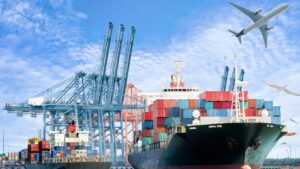In the bustling world of global trade, cargo network solutions stand as the unsung heroes. They’re the invisible threads that keep the tapestry of logistics from unraveling, ensuring the seamless flow of goods from one corner of the globe to another.
So, what’s the secret sauce behind these solutions? How are they transforming the face of logistics? Dive into the world of cargo network solutions and discover how they’re shaping the future of global trade.
Cargo Network Solutions
Cargo network solutions offer a strategic advantage in the modern logistics landscape. They act as robust mechanisms ensuring efficient movement of goods globally.

Efficient cargo networks form the backbone of global trade. They facilitate a smooth flow of goods, making trade transactions seamless and convenient. For instance, the interlinking of various transportation modes like ships, trains, trucks or airplanes creates a complex network. This network ensures that goods reach their destination on time, thus boosting reliability and customer satisfaction.
Cases in point include the use of AI and IoT in cargo solutions. These technologies facilitate real-time tracking, helping reduce disruptions and enhance schedule reliability. As per Markets and Markets, the global IoT in logistics market is set to reach $63.5 billion by 2023, illustrating the growing impact of technological evolution on cargo solutions.
Key Components of Cargo Network Solutions
Delving deeper into cargo network solutions necessitates understanding their crucial components. Two integral elements stand out: Transportation Management Systems and Warehouse and Inventory Management.
Transportation Management Systems
In cargo network solutions, Transportation Management Systems (TMS) carry significant importance. A TMS serves as the backbone of the network, arranging and optimizing freight movement. They coordinate all transportation operations, from route planning to the handling of shipping documentation.
Warehouse and Inventory Management

Warehouse and inventory management form another foundational component of cargo network solutions. These systems manage stock data, allowing precise control over goods throughout various stages, from intake to shipment. Additionally, features like predictive analytics in these systems contribute to lowering warehouse costs and increasing customer satisfaction. It’s evident that in the vast ecosystem of cargo network solutions, warehouse and inventory management systems undoubtedly play a pivotal role.
Challenges in Current Cargo Network Solutions
Despite the integral role of cargo network solutions in modern logistics, persistent issues require focused attention. These issues, primarily regulatory hurdles and technological integration, affect the effective function of cargo solutions.
Regulatory Hurdles and Compliance Issues
Cargo network solutions face regulatory challenges and compliance issues that affect their optimal operations. Different countries maintain varied regulatory standards for cargo movement, impeding seamless international logistics. For instance, customs regulations differ between countries, requiring dedicated compliance teams and significant resources.
Technological Integration and Cybersecurity

The advancing technology in cargo network solutions introduces new challenges. One of the foremost is the integration of disparate systems. Technology has propelled the capabilities of cargo solutions—using Transportation Management Systems (TMS) and Warehouse and Inventory Management for instance—with each system operating in its own silo. These fragmentations lead to inefficiencies and errors. Additionally, with the increase in digitization comes the amplified risk of cyber threats.
Future Trends in Cargo Network Solutions
The future presents promising trends in tackling the challenges and optimizing cargo network solutions.
Innovations in Automation and AI
Automation and AI are emerging as strong factors in the field of cargo network solutions. Pioneered by the rise of technologies such as machine learning, pattern recognition, and predictive analytics, these innovations aim to streamline operations and enhance efficiency.
Environmental Sustainability in Cargo Logistics
Amid global concerns over climate change, environmental sustainability has become a pivotal aspect in cargo logistics. Green logistics, focused on minimizing environmental impact through carbon footprint reduction, is steadily gaining traction. Companies are driving toward sustainable practices, like the use of electric vehicles and fuels with lower emissions, thereby fostering eco-friendly cargo network solutions. For example, companies like Tesla and Rivian are introducing electric delivery vans, reflecting a broader trend in the logistics sector toward environmental sustainability.



